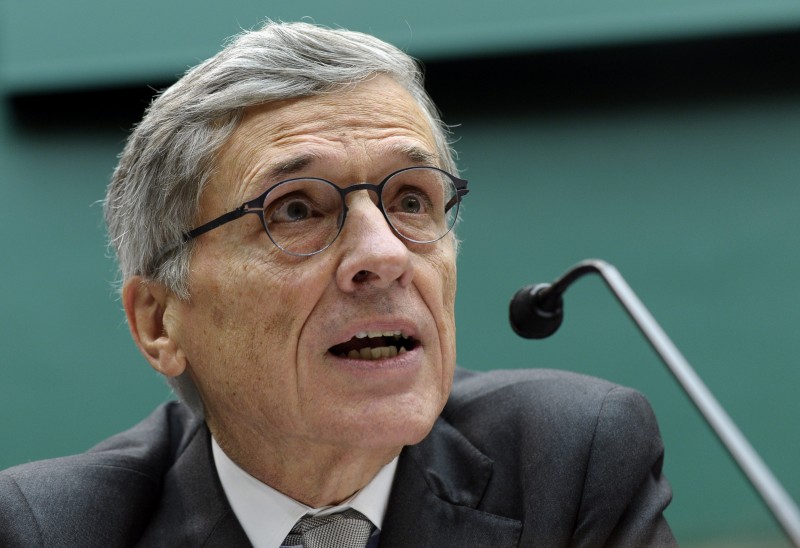 Federal Communications Commission (FCC) Chairman Tom Wheeler testifies on Capitol Hill in Washington, Thursday, Dec. 12, 2013. (Photo: Susan Walsh/AP)
Federal Communications Commission (FCC) Chairman Tom Wheeler testifies on Capitol Hill in Washington, Thursday, Dec. 12, 2013. (Photo: Susan Walsh/AP)
Washington , D.C. (TFC) – The United States Telecom Association has filed a lawsuit to overturn the net neutrality rules set by the Federal Communications Commission this past February. In its Monday morning Press Release USTelecom, who represents Verizon and AT&T among others, said it filed a lawsuit in the US Court of Appeals for the District of Columbia joining a similar law suit filed by Alamo Broadband Inc.
The (FCC) published its net neutrality rules in the Federal Register on Monday and, according to procedure, that began a 60-day countdown until they go into effect (June 12). Their publication also opened a 30-day window for Internet service providers to appeal. USTelecom and Alamo Broadband wasted no time. USTelecom filed a previous action preserving the issue according to local court rule prior to the formal petition in March.
The rules, which were voted on in February, reclassify broadband under Title II of the 1934 Communications Act and require that ISPs transmit all Web traffic at the same speed. Over 400 pages long, USTelecom filed a CD of the rules as an exhibit with its action.
This suit is predicted to be the first of many, as broadband groups like AT&T to congressional Republicans have signaled that they plan to fight the decision.
USTelecom President Walter McCormick released the following statement:
“In challenging the legality of the FCC’s Open Internet order, USTelecom believes the FCC used the wrong approach to implementing net neutrality standards, which our industry supports and incorporates into everyday business practices. Our appeal is not focused on challenging the objectives articulated by the President, but instead the unjustifiable shift backward to common carrier regulation after more than a decade of significantly expanded broadband access and services for consumers under light-touch regulation. Reclassifying broadband Internet access as a public utility reverses decades of established legal precedent at the FCC and upheld by the Supreme Court. History has shown that common carrier regulation slows innovation, chills investment, and leads to increased costs on consumers. The commission’s overreach is not only legally unsustainable, it is unwise given the enormous success of the commission’s Title I approach for consumers, businesses and Internet entrepreneurs, and it is unnecessary given the fact that broadband service providers are operating in conformance with the open Internet standards advanced by the President, agree with the standards, support their adoption in regulation by the FCC under Section 706, and support their enactment into law by the United States Congress.”
Telecom giants “know there’s one place in the world where no one is watching YouTube, there’s only one group where ideology prevails and the actual Internet experience is irrelevant,” Reed Hundt, a former Democratic FCC chairman during the Clinton administration told Politico this past February.. “And that’s the [federal] judges on the D.C. circuit.”
In 2008, then-FCC Chairman Kevin Martin, a Republican, tried to enforce a set of net neutrality “principles,” cracking down on Comcast for throttling Web traffic. The cable giant sued the agency to overturn the decision, and won. Under the next chairman, Democrat Julius Genachowski, the FCC issued an open Internet order in 2010, but it also drew a legal challenge, this time by Verizon, which prevailed in court.
In Congress, Senate Commerce Committee Chairman John Thune, is drafting a bill to install some net neutrality protections while avoiding utility-style regulation and limiting the FCC’s overall authority over broadband. Any legislation that undermies the recent net neutrality rules is expected to be vetoed by the President.
An FCC spokeswoman told the Associated Press via email that the agency is confident the courts will uphold the rules.
The long-expected legal battle over net neutrality has have only just begun.

